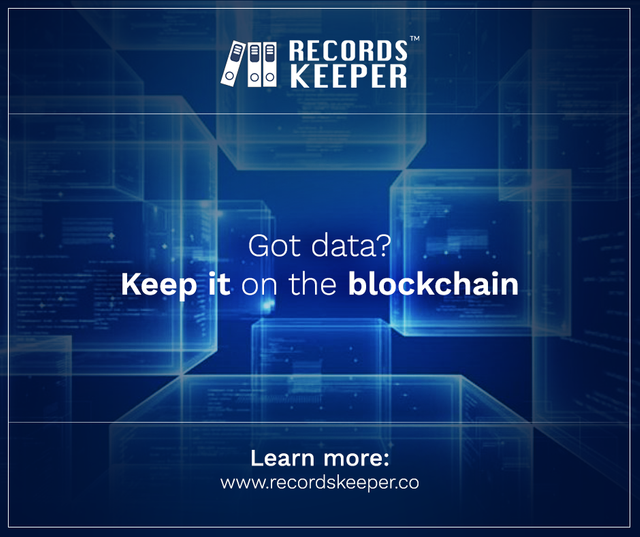
The days of paper are slowly coming to an end. That’s not an omen is a fact that is rapidly catching up on us on every single aspect of our lives. Think for a minute when was the last time you took a note to remind you of something without using a smart device.
There are currently at least 400 different ways to keep records on anything we need using some sort of electronic format, and all of them require different ways to be handled, stored and managed.
Most of this process is done manually by most computer owners who are the primary generators of data, and they do so unconsciously in an unorganized fashion. That's why most PC's are a mess. Even inside businesses and organizations, this process is viewed as difficult, and it requires a lot of manpower to be handled properly.
Recordskeeper is looking to change that by creating a platform that uses a seamless system to manage all the information generated by the user and organize it automatically without human intervention.
The network is being built with an open architecture to ensure the adaptability to any new format of storage that might become available in the future. To avoid the many problems that are currently related to the management of data: modifiable, impossible to authenticate and verify, expensive to handle, centralized, and the worst offender on the list: unreliable even after being subjected to an audit process that will surely cost thousands (even millions) of dollars.
Recordskeeper is looking to change that by creating a globalized ecosystem to share verified data located on decentralized repositories and managed by Blockchain Technology.
The way Recordskeeper works requires a little bit of technical explanation, but we can try to make it simple for your understanding, let's try it out. When a user created a file of any type, this file is converted to metadata and receives a signature that will allow the Recordskeeper network to automatically handle the piece of data into a storage ledger where these types of files are safeguarded and can be retrieved on request.
The blockchain network will create a registry of the piece of data and will make sure that the information contained on it is immutable and unaltered. Since the company is developing the platform with open coding, any type of file can be uploaded to the network and users who need the data or are willing to trade for it can use a security feature labelled SHA256 to verify the content of the file and every modification it might have.
At the moment having a system like Recordskeeper available can change the game for data brokers who are usually the ones getting the best end of the deal when it comes to trading data, as well as the companies that verify that information for a lot of money. The company can disrupt the system imposed by these players by offering clean, useful data straight to the ones who need it without the need of third parties making the process as expensive and untrustworthy as it currently is. To learn more about their work, you can check https://www.recordskeeper.co/ and join the Telegram